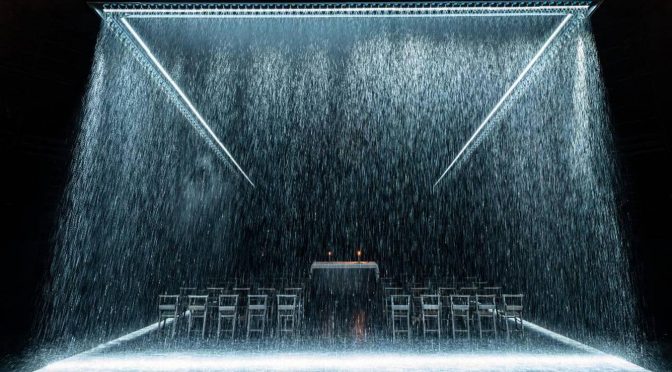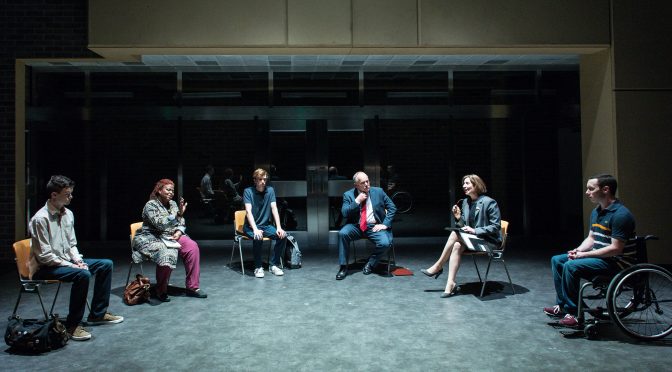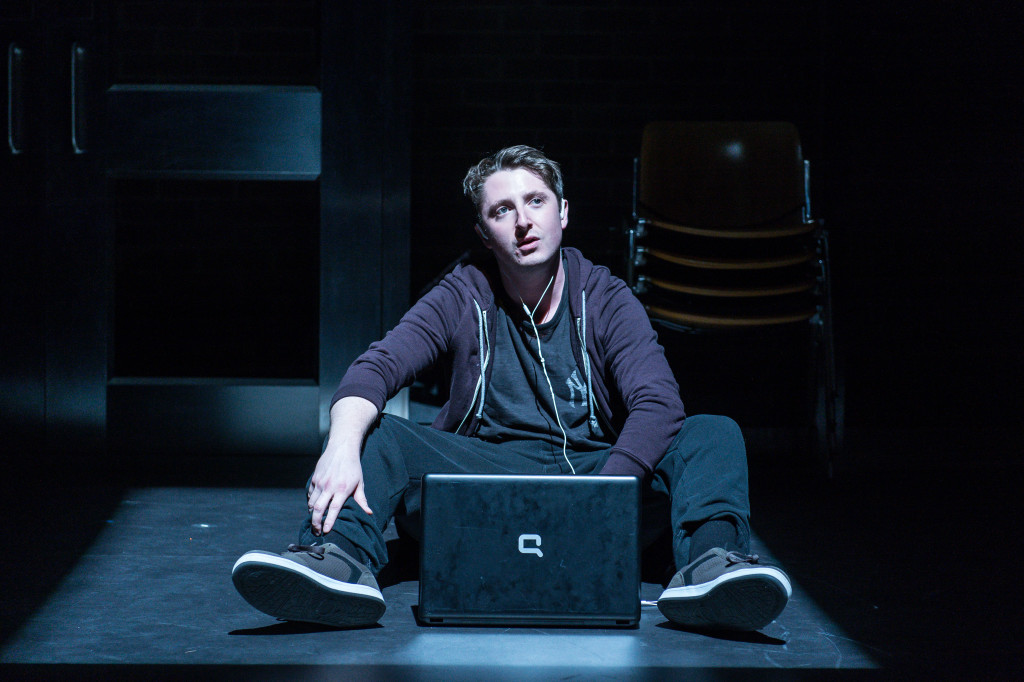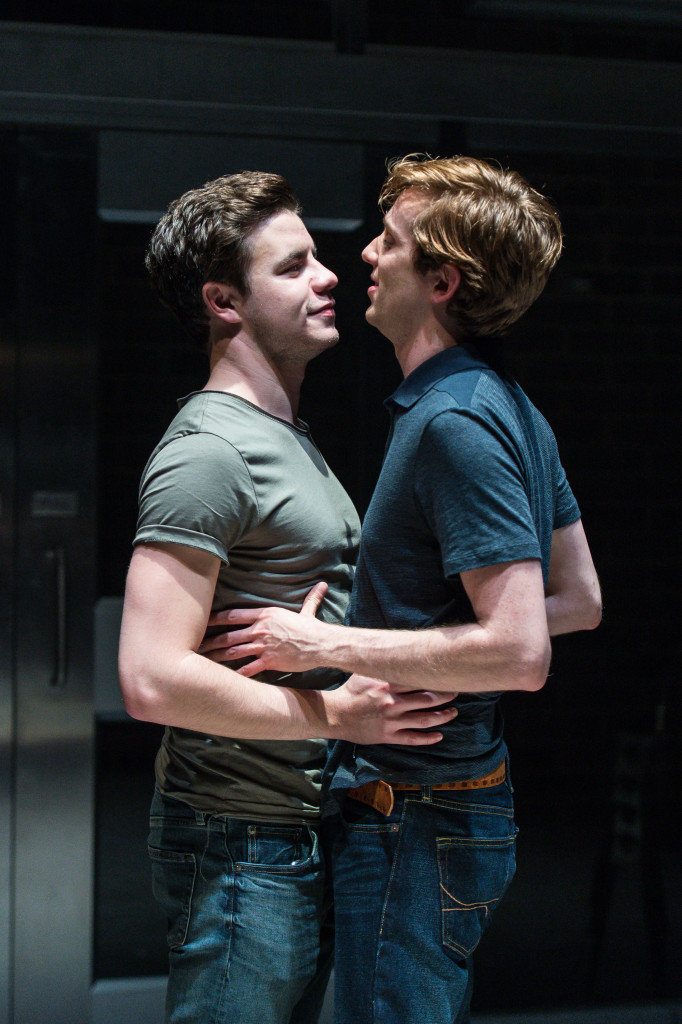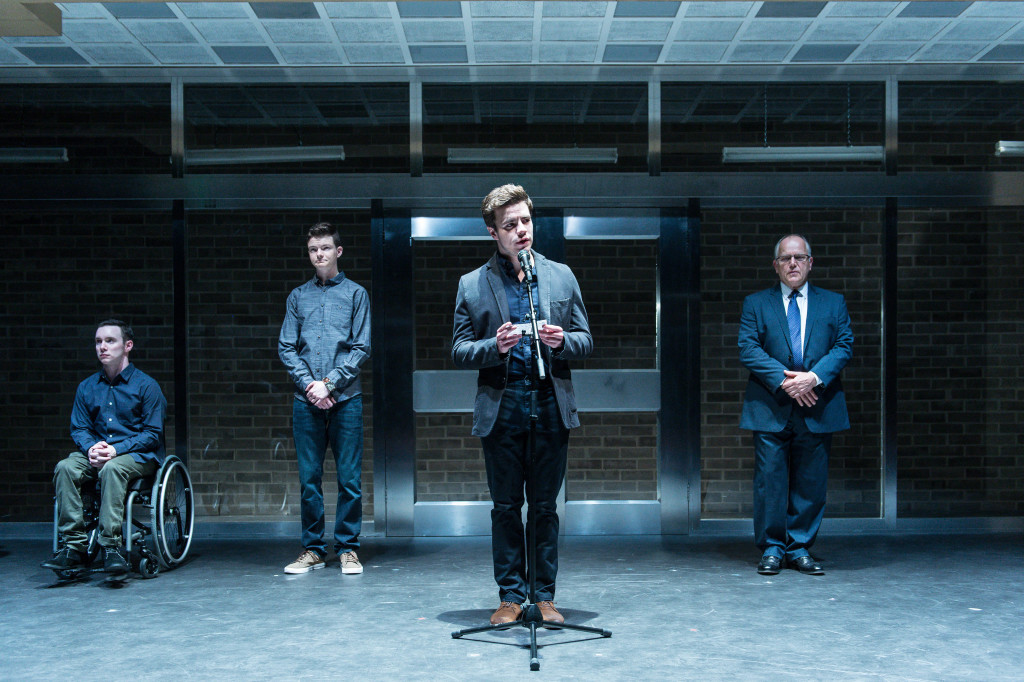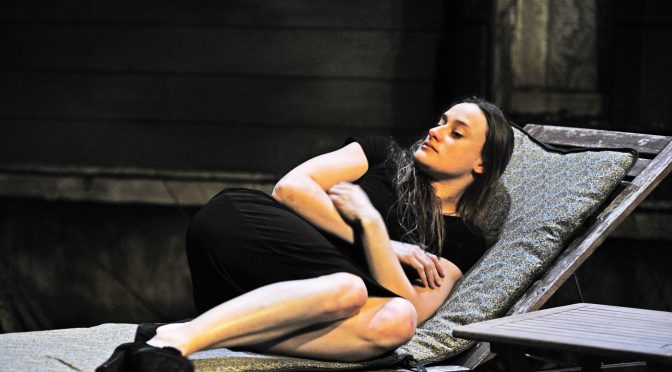Lyndsey Turner’s new production of Arthur Miller’s classic looks and sounds great – no small achievement given its famous setting of seventeenth century Salem run by Puritans. Design supremo Es Devlin uses a lot of rain onstage while Tim Lutkin’s superb lighting also impresses. The music from Caroline Shaw is good – a mix of hymns and background soundscape that is atmospheric but not too spooky. Behind the fancy touches is a solid production of an excellent play.
There’s nothing faddish when it comes to a revival (if that happens to concern you). For Miller, the historic witch hunts are a parallel to McCarthyism in the 1950s. Turner doesn’t stretch to any twist. I thought the crazy children, who say they have seen devil and end up “jangling the keys of the kingdom” might provide a spin. But the audience can make up its own connections – thank you – Miller’s study of hysteria and revenge is powerful enough.
Turner has confidence in the piece. Miller’s preface and an afterword are added, pretty neutral inclusions in my opinion. Respect for the text is referential (after all, it really is brilliant) and despite ending up a long evening, the production is gripping.
The key is not to question how credible events seemed. The accusations the girls make are going to raise eyebrows nowadays – could people really believe them? Likewise, the twisted logic of the theocracy that falls for their tricks: yes, the idea of dancing was scandalous! But the dark motives in the play are serious and Turner aids the piece’s gravitas.
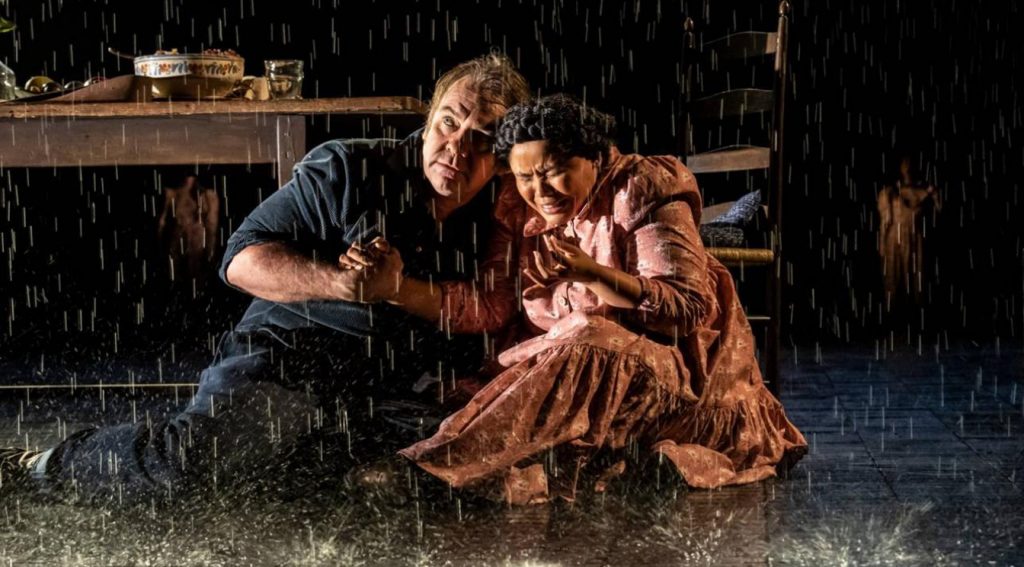
The younger cast members do a great job when it comes to a degree of restraint – not easy when you are supposed to be possessed by the devil. The leader of the pack – Abigail -seems far from “wild” and her cohort Mary suitably scared through strong performances from Erin Doherty and Rachelle Diedericks. There is a sense neither girl really knows what they are doing but are carried along by events.
It’s the adults in the show who are the focus. A suitably bland Paris, the community’s minister, becomes increasingly manic in a controlled performance from Nick Fletcher. John Proctor, the play’s flawed hero, takes a back seat: Brendan Cowell must wait until the very end to shine. Instead, it’s his wife, played by the excellent Eileen Walsh whose steely self-righteousness interests more. Walsh suggests the power as well as the costs obtained from the character’s “cold” persona.
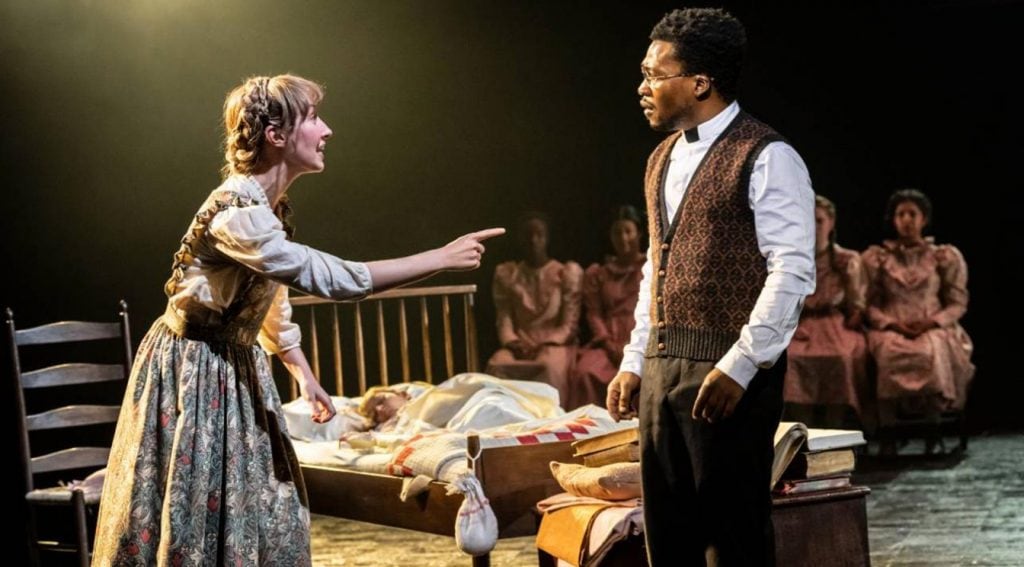
Above all, the court itself is the focal point. More than just the villains of the play, Miller is careful to present the arguments of those who come to judge. There are two figures with different journeys here: the Governor Danforth (played expertly by Matthew Marsh) who balances arrogance with conviction. And an excellent Reverend Hale – a great performance from Fisayo Akinade – whose flip between repentance and cynicism when he realises the disaster he is embroiled in, is brilliantly done. It’s these figures of authority that interest most – and Turner interrogates them superbly.
Until 5 November 2022
www.nationaltheatre.org.uk
Photos by Johan Persson

